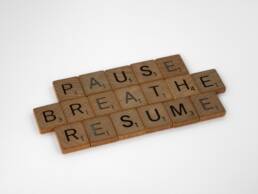The invisible workload: how domestic responsibilities shape women’s careers
We talk a lot about work-life balance, but for many women, the ‘life’ side of the equation is anything but balanced. Despite progress in the workplace, the division of household responsibilities remains stubbornly unequal — even in dual-career households. And for solopreneurs, the challenge can be even greater, with no corporate infrastructure or shared parental leave policies to help lighten the load. The impact? A constant juggling act that drains time, energy, and creativity — often without recognition.
We talk a lot about work-life balance, but for many women, the ‘life’ side of the equation is anything but balanced. Despite progress in the workplace, the division of household responsibilities remains stubbornly unequal — even in dual-career households.
And for solopreneurs, the challenge can be even greater, with no corporate infrastructure or shared parental leave policies to help lighten the load. The impact? A constant juggling act that drains time, energy, and creativity, often without recognition.
Research from UCL shows women continue to shoulder a disproportionate share of household responsibilities, even in dual-earner couples. Fewer than 7% of couples share housework equally, regardless of similar levels of education, paid work, and shared beliefs about gender roles.
Societal pressure remains, and the myth that women are ‘natural multitaskers’ often adds to that, even though studies consistently show that multitasking actually undermines productivity, and in fact women are less likely to multitask when given the choice in a work situation.
Working from home may even add to the problem as the domestic tasks are upfront and evident. Research of couples working from home during the pandemic found women increased time spent on housework, while men’s contributions remained largely unchanged.

Some may think that when solopreneurship is added to the mix, it can give the flex that’s needed, but in fact it can be even harder, as there is no one else to pick up any of the balls threatening to fall to the floor.
The end game can be overwhelm, with McKinsey/LeanIn.org reporting that 42% of working women feel burned out.
Building a sustainable business includes finding a sustainable route through the work/life balance of domestic responsibilities and we shouldn’t underestimate their impact on creativity and energy.

At Lumin, we believe in the power of collaboration and shared knowledge. That’s why we’re working to create a trusted space where women solopreneurs and professionals can connect, share experiences, and access the collective wisdom of a multi-generational network. Whether you’re just starting out or pivoting into new opportunities later in your career, we’re here to support your journey.
Keep updated and inspired : let us know you’re interested
#WomenandBurnout #Solopreneurs #WomenInBusiness #Entrepreneurship
Author

This is LUMIN
Editorial from our writers and contributors towards our common goal: raising awareness of the issues that matter to women who want to drive greater success for all, in the world of work and in business
Related Posts
the power of saying no
Just because you can, doesn’t mean you should. For many women, saying no…
27/02/2025careers,saying no,setting boundariestime management,avoiding burnout,personal development,self employment,business,wellbeing
tackling the march of macho leadership
The march of macho leadership seems unstoppable. How can we foster genuine…
26/02/2025leadership,women in leadership,Vladimir Putin,Donald Trump,Elon Musk,Signalling Authenticity,dictatorshipsmission,careers
pulling back the veil on hidden fatigue
The never-ending mental load of keeping work, family, and life running…
20/02/2025wellbeing,mentoring,entrepreneurscareers,world of work,women in business,Solopreneurs,burnout




